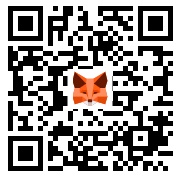Positive Review: Embracing Boredom is the “Spiritual Antidote” to the Lack of Meaning
In the digital age of information explosion, “boredom” has long been labeled as “negative.” We are accustomed to filling every second of our free time by scrolling through our phones, listening to podcasts, or watching short videos, as if “boredom” were equivalent to “wasting time.” However, the view of Arthur C. Brooks, a professor at Harvard University, is like an alarm bell: Evading boredom essentially means cutting off the channel for in – depth dialogue with oneself, which may ultimately lead to a vicious cycle of “lack of meaning – anxiety and depression.” This insight precisely hits the spiritual pain point of contemporary society, and its positive significance deserves in – depth exploration.
Firstly, Brooks’ interpretation of the “default mode network” reveals the underlying connection between boredom and deep thinking. The brain’s default mode network (DMN) is activated when “there is nothing to do.” This mechanism is not an evolutionary defect but a unique “meaning explorer” for humans. When we are forced to put down our phones and stop external stimuli, the DMN will guide our minds to wander, triggering thoughts about ultimate questions such as life goals and a sense of value. As Brooks said, “When you’re bored, you get caught up in these disturbing existential questions.” This “unease” is precisely the starting point of self – awakening. For example, many entrepreneurs’ crucial decisions (such as adjusting business models or redefining missions) often stem from epiphanies during “boring moments.” When they turn off the navigation voice during their commute or put down their headphones at the gym, the suppressed “sense of meaning” will naturally emerge, driving them to break out of the “efficient but empty” daily cycle.
Secondly, Brooks’ experimental evidence strongly echoes real – world observations. The electric shock experiment conducted by his colleague Dan Gilbert, in which participants preferred to shock themselves rather than endure 15 minutes of boredom, directly exposes modern people’s fear of a “stimulus – free state.” Behind this fear is the long – term “domestication” of our attention by digital devices. We are accustomed to immediate feedback (likes, message notifications), so much so that we can’t tolerate “blank time.” Real – world data also shows that the global incidence rates of anxiety and depression are rising in tandem with the popularity of smartphones. This is not a coincidence. Brooks pointed out that “eliminating boredom is equivalent to turning off the switch for meaning exploration.” This logic explains why, despite the abundance of material wealth today, the “empty – heart syndrome” is becoming more and more common. When we fill every moment with fragmented information, we lose the opportunity to ask “Why do I live?” and ultimately become “efficient but empty people.”
More importantly, Brooks provides a practical “antidote” – actively embracing boredom. His personal practices (such as no electronic devices after 7 p.m. and not touching the phone while eating) are not self – punishment like that of a hermit. Instead, they are about rebuilding the tolerance for boredom through “behavioral training.” The value of this training lies not only in “reducing anxiety” but also in reshaping the “rhythm” of life. When we start to get used to 15 minutes of blank time, we will gradually find that the daily “small disappointments” (such as repetitive work and interpersonal friction) are no longer so unbearable because we have learned to cultivate “meaning” in “meaninglessness.” As Brooks said, “You’ll be less bored with your work and less bored with your relationships.” This “insensitivity” is precisely the key to combating the “addiction to instant gratification” in modern society.
Negative Review: Beware of the Idealized Trap of “Boredom Worship”
Although Brooks’ view is profound, it also has a certain degree of idealization. While affirming its value, we need to rationally examine its limitations and avoid falling into the other extreme of “being bored for the sake of boredom.”
Firstly, the objective constraints of modern life may make it difficult to “actively embrace boredom.” Brooks suggests “not listening to the radio during the commute and not bringing a phone to the gym.” However, for many entrepreneurs or professionals, commute time may be an “efficient period” for handling work messages or listening to industry podcasts. Listening to music or podcasts during a workout is often regarded as a means to improve exercise performance. Completely cutting off electronic devices may affect work efficiency or the quality of life. For example, entrepreneurs need to stay sensitive to market dynamics. If they forcefully “turn off” information input, they may miss key opportunities. In addition, the need for emergency contact (such as a family member’s sudden illness) also makes the “no – electronic – device” policy risky in reality. Although Brooks suggests “setting up emergency numbers,” not everyone can operate them flexibly (such as the elderly or those who are not tech – savvy).
Secondly, individuals’ feelings about “boredom” vary significantly. Brooks assumes that “boredom will trigger meaning – related thinking.” However, for some people (such as highly sensitive individuals and depression patients), boredom may instead intensify negative emotions. Psychological research shows that about 20% of people will fall into ruminative thinking (repeatedly recalling painful experiences) in a “stimulus – free state” rather than engaging in constructive thinking. If we blindly promote “embracing boredom,” it may cause secondary harm to this group of people. For example, a person who has just experienced a business failure may be triggered into self – doubt rather than meaning exploration by forcing themselves to “sit idle for 15 minutes.”
Thirdly, the “tool attribute” of electronic devices should not be completely negated. Brooks describes the phone as “the main culprit for shutting down the default mode network.” In fact, electronic devices can also be “tools for meaning exploration.” For example, reading in – depth articles and participating in online community discussions can also trigger thoughts about life goals. Over – emphasizing “staying away from electronic devices” may ignore their positive roles in knowledge acquisition and social support. For example, entrepreneurs may find business inspiration more efficiently through industry community exchanges than through “being bored alone.” Using the phone to record “thoughts during boredom” (such as voice memos) can also transform fragmented inspiration into concrete actions.
Finally, there is a deviation between Brooks’ experimental scenario and reality. In Gilbert’s electric shock experiment, participants were confined to a closed room with “no stimuli.” This extreme situation magnifies the discomfort of “boredom” but may not represent the “mild boredom” in real life (such as waiting at a red light or queuing for 5 minutes). In reality, what people usually avoid is “mild boredom,” and this “interstitial time” may not completely shut down the DMN. For example, when waiting at a red light and daydreaming (without scrolling through the phone), the brain may still enter the default mode network. Therefore, the conclusion that “evading all boredom = cutting off meaning exploration” may be an over – inference.
Advice for Entrepreneurs: Find a Dynamic Balance between “Efficiency” and “Meaning”
For entrepreneurs, Brooks’ view provides important inspiration: While pursuing efficiency and seizing market opportunities, they need to reserve space for “meaning – related thinking.” Here are some specific suggestions:
- Set “strategic boredom periods” instead of completely rejecting electronic devices: Entrepreneurs can set aside 30 minutes every day as “distraction – free time” (such as right after getting up in the morning or before lunch break). Turn off the phone and computer, and focus on daydreaming or recording inspiration. Don’t pursue “output” during this time; just allow the brain to wander freely. For example, Elon Musk once mentioned that many of his innovative ideas came from “daydreaming in the shower.” This “strategic boredom” is easier to implement than forcibly “staying away from devices.”
- Distinguish between “information input” and “meaning output”: Entrepreneurs need to be vigilant against “information overload.” Reading industry news and monitoring competitors’ dynamics are necessary “inputs,” but they need to set aside time to internalize this information into “meaning” (such as “How does my startup solve real problems?”). It is recommended to use a “dual – track system of input – reflection”: Handle information in the morning (for efficient input), and arrange “boredom time” in the afternoon or evening (for in – depth reflection) to avoid passive information reception replacing active thinking.
- Use electronic devices to “aid boredom” instead of “combat boredom”: The phone is not a scourge; the key lies in the purpose of use. Entrepreneurs can turn the phone into a “meaning tool.” For example, use the memo to record inspiration during boredom, use a meditation app to guide “purposeless thinking,” or use a timer to force themselves not to scroll through the phone for 15 minutes. This “controllable boredom” can not only retain the convenience of electronic devices but also activate the default mode network.
- Pay attention to cultivating the “collective boredom tolerance” of the team: Startup teams often fall into a “busy competition” – full – schedule meetings and instant message responses. However, this “false efficiency” may cover up the problem of vague goals. It is recommended to regularly organize “meetings without an agenda” (team members daydream together for 20 minutes and then share their thoughts), or encourage employees to “actively embrace boredom” during their commute or lunch break. This “collective meaning exploration” can enhance team cohesion and avoid “being busy for the sake of being busy.”
- Accept the stage – nature of “boredom” and avoid extremism: The need for “boredom” varies at different stages of entrepreneurship. In the startup phase, rapid trial – and – error is required, which may need more information input. In the stable phase, reflection on the direction is needed, and more boredom time can be added. Entrepreneurs should adjust flexibly and don’t force themselves to “completely stay away from devices.” The key is to maintain awareness of the “sense of meaning.” When the team is found to be in a state of “being efficient but confused,” it is a signal that “boredom time” is needed.
Conclusion: Brooks’ view does not deny efficiency or technology. Instead, it reminds us that on the wild – running entrepreneurial road, we should “step on the brakes” occasionally and leave some space for boredom so that we can see “why we are running.” For entrepreneurs, the “sense of meaning” is not only the source of personal happiness but also the foundation of the long – term value of the enterprise. After all, an entrepreneur who clearly knows “for whom to create value” can go more steadily and further.
- Startup Commentary”Three post-2005 entrepreneurs are reported to have secured a new financing of 350 million yuan.”
- Startup Commentary”Retired and Reemployed: I Became Everyone’s “Shared Grandma””
- Startup Commentary”YuJian XiaoMian Breaks Issue Price on Listing: Where Lies the Difficulty for Chinese Noodle Restaurants to Break Through in the Market? “
- Startup Commentary”Adjusting Permissions of Doubao Mobile Assistant: AI Phones Are a Flood, but Not a Beast”
- Startup Commentary”Moutai’s Self – rescue and Long – term Concerns”





